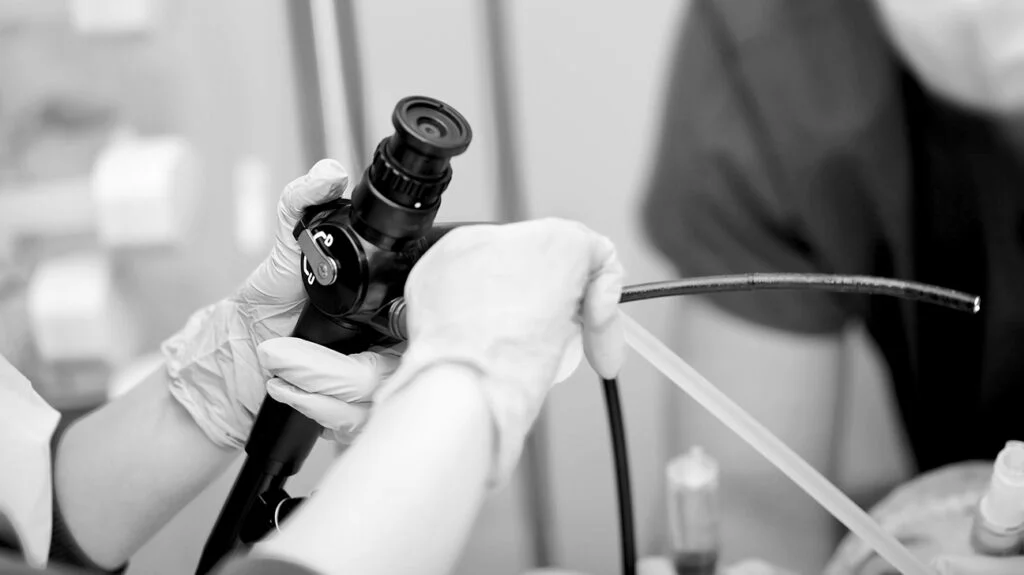What is Laparoscopic Colorectal Surgery?
Laparoscopic colorectal surgery refers to minimally invasive techniques for operating on portions of the colon, rectum and anus. It utilizes small incisions, specialized instruments, a fiberoptic camera, and advanced visualization to perform procedures while minimizing trauma to the patient. When performed by properly trained surgeons, laparoscopic approaches offer considerable patient benefits versus open colorectal surgery.
How It Works?
Surgeons insert a laparoscope with a tiny camera through the patient’s abdomen and narrow surgical tools to visualize and operate on the colon and rectum. The camera projects a magnified view onto monitors in the operating room. Specialized instruments allow precise tissue manipulation, dissection, resection, and reconstruction of structures laparoscopically.
Benefits for Patients
Laparoscopic surgery causes less pain due to smaller incisions and avoids a large abdominal incision. This results in shorter hospital stays, less risk of infection, reduced blood loss, faster return to normal diet and activities, and lower rates of postoperative complications. Recovery time is typically weeks faster than open surgery.
Advanced Skills Required
However, laparoscopic colorectal techniques require extensive training beyond basic laparoscopy skills. The advanced instrumentation, altered angles, limited manoeuvrability, two-dimensional visualization, and difficulties managing complications laparoscopically demand a learning curve. That’s why a dedicated course is ideal for mastering safe, effective laparoscopic colorectal surgery.
Laparoscopic Colorectal Surgery Course
The following are the key features of the Laparoscopic Colorectal Surgery Course:
Structured Curriculum
A laparoscopic colorectal surgery course allows surgeons to gain the knowledge and hands-on training required to implement minimally invasive techniques. It combines interactive lectures on theory with intensive skills labs for technique competency.
Key Subject Areas
An effective course covers all aspects of laparoscopic colorectal procedures through a structured curriculum. Subjects include patient selection principles, room and equipment setup, port placement strategies, tissue manipulation, mobilization and resection methods, anastomosis techniques, specimen extraction, and more. Laparoscopic approaches for both colon and rectal conditions should be included.
Immersive Skills Development
Hands-on sessions utilizing box trainers, animal models, and virtual reality simulation are ideal for developing skills. Experienced faculty provide step-by-step guidance and feedback while trainees repeatedly practice procedures and key steps to build proficiency.
Implementing Minimally Invasive Surgery
Upon completing training, surgeons can immediately implement laparoscopic colorectal surgery at their hospitals. This allows more patients to benefit from less invasive techniques, faster recovery, and fewer complications.
Conclusion
Laparoscopic colorectal surgery, in summary, is a significant development in the field of surgical medicine. Patients can gain from its less invasive technique in various ways, including decreased discomfort, shorter hospital stays, quicker recovery times, and a decreased incidence of postoperative complications. It’s important to stress that mastering laparoscopic colorectal methods necessitates further training and sophisticated knowledge beyond that of basic laparoscopy.
After finishing this training, a surgeon’s skill set can expand, and more patients can benefit from laparoscopic colorectal surgery. Ultimately, this strategy advances colorectal surgical techniques and improves patient outcomes while marking a considerable advance. Laparoscopic colorectal surgery is projected to become more and more important in the field of colorectal surgery as technology and methods continue to progress.


